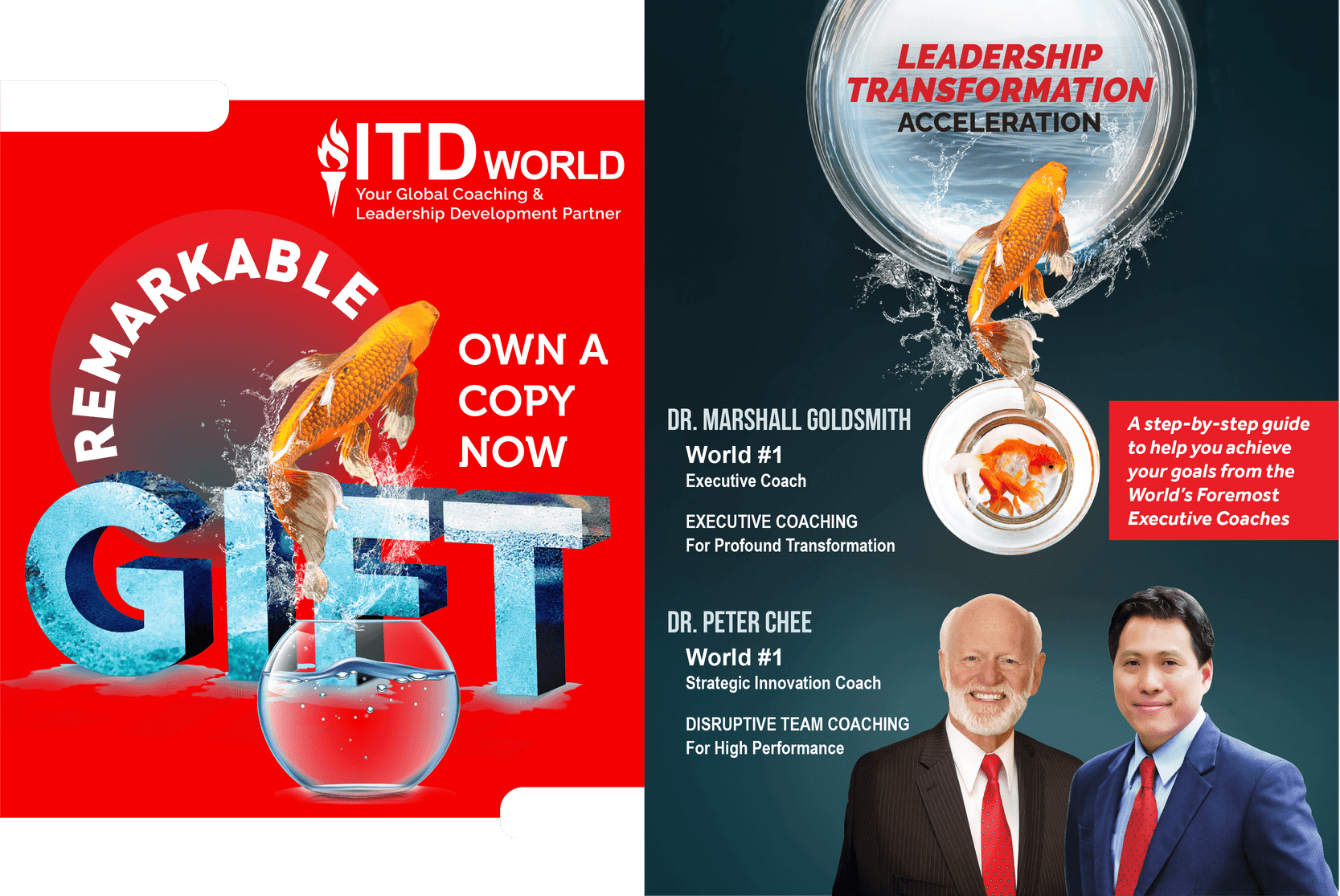


By Dr Peter Chee and Dr Jack Canfield
In the book Coaching for Breakthrough Success, World #1 Success Coach Dr Jack Canfield and #1 Strategic Innovation Coach Dr Peter Chee share a story about a cookie thief. In the story, a young lady had bought a pack of cookies and a book to pass the time while waiting for her flight at the airport.
While enjoying her new book, a man came, sat beside her and started reading his magazine. When the lady took a cookie from the open packet next to her, the man also did the same. Although annoyed and desiring greatly to slap the man with her book, she did not want to cause a scene.
This continued for some time. Every time she took one cookie, the man reached in for one too. Eventually a final cookie remained, and she was curious to see what would the man do. Surprisingly, the man took the last cookie, broke it in half and offered her the other half.
Flustered and angry, she stormed off and boarded her flight. She composed herself after getting to her seat and opened her handbag to get her glasses. To her embarrassment, her packet of cookies was inside her handbag. All these while she was the one who had been eating his cookies! There was no opportunity to apologize or explain as the flight took off, she was the cookie thief.
The story shows how being impartial and non-judgmental is important. Effective coaches are impartial and non-judgmental. They become a third-party observer that can offer a clear and unobstructed view by setting aside their prejudices, biases, and preconceived notions. Good coaching happens when you resist the temptation to take sides, judge the actions of the coachee, and jump to conclusions.
To remain impartial and nonjudgmental is to cultivate the ability to listen with empathy. Listening with empathy means you put yourself in another person’s position to better understand his or her feelings and emotions. When you empathize with someone, you are neither agreeing nor disagreeing. You are only trying to see their point of view. It is listening with the heart in an attempt to understand.
Consider the two major elements to empathy:

By listening with empathy, the message you convey is this, “I understand your problem and how you feel about it; I am interested in what you are saying, and I am not judging you.” This message is transported verbally, or non-verbally through body language. Do your best to reflect the substance and feelings expressed by the other person. The focus is on the person speaking until he or she has completed their sharing.
People have the innate sense to know when they are truly and empathically listened to. Objectivity is lost when the listening happens only to take sides, or to make judgements. When a coach does this, the coaching conversation becomes ineffective as the coachee feels judged, or worse, feels accused by a coach who is supposed to be supportive. Let’s look at an example

An essential part of true listening is the discipline of bracketing the temporary giving up or setting aside of one’s prejudices, frames of reference and desires so as to experience as far as possible the speaker’s world from the inside, to step inside his or her shoes
– M. Scott Peck, MD



The nonempathetic example shows how the coach has diminish the achievements of the coachee by ignoring the speaker’s achievements and turned the focus on himself. On the other hand, the empathetic example displays how the coach is interested in the coachee’s wins and is focused on their happiness and progress.
Realize that everyone sees things differently. The gift effective coaches can give to their coaches is empathic listening. This will provide an opportunity for people to talk through their problems so they can clarify their thinking, and to provide an outlet for emotional release.

A skilled listener takes information from others while remaining nonjudgmental and empathic, and acknowledges the speaker in a way that invites the communication to continue.
– Madelyn Burley-Allen

TRANSFORMATIONAL COACHING QUESTIONS
LATEST HAPPENINGS AT ITD WORLD
ITD World’s Certified Chief Master Coach (CCMC) is listed the Top 10 of Career Boosting Training Programs for Professional Success.
Uncover transformational coaching approaches to unleash the genius of C-level executives, senior leaders, and top talent in your organization that differentiates your leadership impact in this profound journey.
Gain new capabilities from world-class gurus and experts; be inspired by live demonstrations, engage with industry leaders, network with like-minded peers, and grow in confidence by completing rewarding projects with the CCMC.
Registration for the coming intake in September 2025 is now open. See you then!
FURTHER RESOURCES



